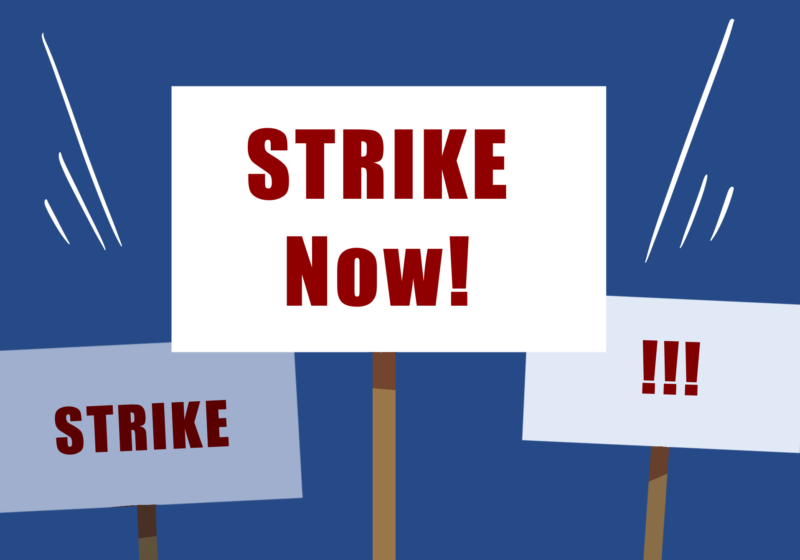Before the administration’s decision to include student workers in the minimum wage raise to $15 right after Christmas, outcries from despondent student employees had become the norm. Student workers had even taken to social media to proactively voice their frustrations and disseminate plans for a strike at the beginning of the semester. To date, the urstudentworkerstrike Instagram account has nearly 400 followers.
Although it didn’t happen, strikes like these, unfortunately, are not uncommon on college campuses. In November, Columbia University students went back on strike, to finally make gains only two weeks ago. Their student workers’ union, made up of 3,000 graduates and undergraduates, went on strike for the second time this past year to call for higher wages and more protections.
It’s terrifyingly normal for university administrations to undervalue their student workers, especially in the profit-driven world of private universities like UR. Student workers and their needs are simply never a priority. As a student worker myself, I understand the frustration. When you’re undervalued and underappreciated and, more importantly, underpaid, it tends to seem like there’s only one option, all shiny and deliriously tempting — strike.
Fortunately, it didn’t come to that. Even before UR’s change of heart, increasing the minimum wage was the University’s best course of action, for the following reasons. The state of New York is already on the path towards the implementation of the $15 minimum wage, with the minimum wage increasing slightly until $15 becomes standard. At the end of 2020, the minimum wage would have increased to $13.20. If the $15 minimum is inevitable, then it doesn’t make sense to exclude student workers from the change. UR would simply be delaying a future that is fast-approaching. By choosing to act now, UR would be ahead of the curve and could use this as an opportunity to cultivate a better relationship with its student workers, and serve as an example to peer universities.
Moreover, being a student at UR does not completely erase financial hardship. A lot of students work because they have no choice. They work out of necessity to pay tuition while also trying to maintain good grades. Implementing higher wages for these students would make things more bearable for them.
Despite UR’s adherence to students’ demands this time around, the track record of college administrations giving into students’ needs only after heavy criticism is not very promising. This then begs the question: Is strike the only option in the pressing wage conflict at college campuses across America? I would argue, yes. Sometimes the only way to make a change to the system is to break it yourself.
But I don’t think we should stop here. We should follow in the footsteps of the students at Columbia University — we should unionize. Unionizing would give us the leverage necessary, when the time comes, to push the administration for more. An army of student workers is exactly what we need to prevent future broken promises from the administration.
This uproar of student workers fighting for what they deserve is just the beginning. We shouldn’t just stop with the $15 minimum wage. There is so much more to be done.




